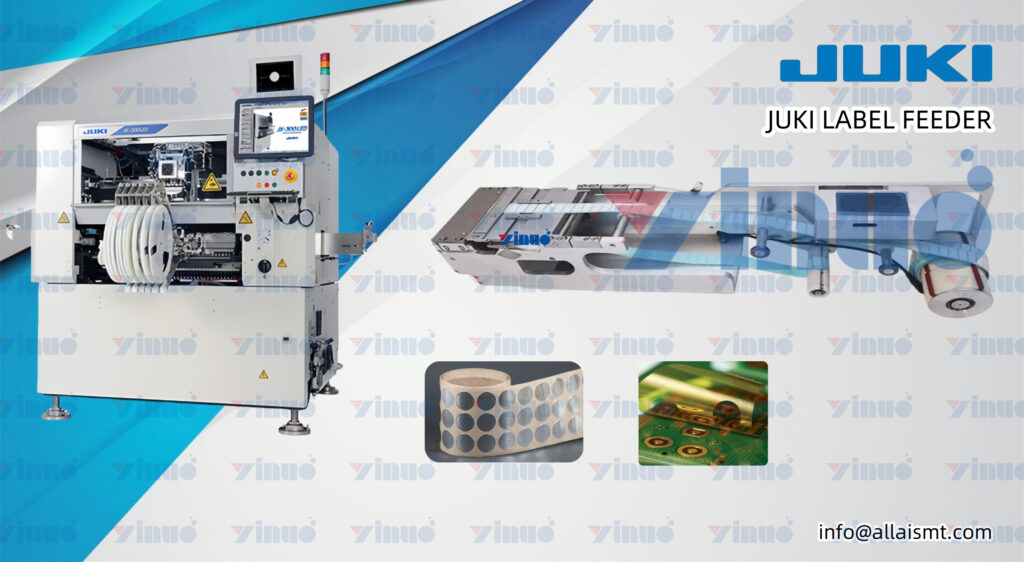How Label Feeders Improve Supply Chain Efficiency
In the intricate world of supply chain management, every component plays a crucial role in ensuring that products move smoothly from manufacturers to consumers. Label feeders, often an overlooked element, significantly impact supply chain efficiency by streamlining the labeling process, enhancing accuracy, and reducing operational costs. This article explores how label feeders contribute to a more efficient supply chain and the benefits they bring to various stages of the supply chain.
1. Enhanced Labeling Accuracy
One of the primary advantages of modern label feeders is their ability to improve labeling accuracy. Accurate labeling is crucial for compliance, tracking, and customer satisfaction. Label feeders equipped with advanced sensors and vision systems ensure that labels are applied correctly, reducing the likelihood of errors. This precision minimizes the risk of mislabeling, which can lead to costly recalls, customer complaints, and compliance issues.
2. Increased Operational Speed
Speed is a critical factor in supply chain efficiency, and label feeders play a vital role in accelerating the labeling process. High-speed label feeders can apply labels at rapid rates, significantly reducing bottlenecks in the production line. This increased speed helps meet tight deadlines, keeps up with high production volumes, and ensures that products are processed and shipped on time.
3. Reduction in Labor Costs
Automation through label feeders reduces the need for manual labor, leading to substantial cost savings. By minimizing the reliance on human operators for labeling tasks, businesses can lower labor costs and reallocate human resources to more value-added activities. Automated systems also reduce the likelihood of human error, further enhancing cost efficiency and operational effectiveness.
4. Improved Inventory Management
Label feeders contribute to better inventory management by ensuring that labels are applied consistently and correctly. Accurate labeling facilitates precise tracking and monitoring of inventory throughout the supply chain. This improved visibility helps in maintaining optimal inventory levels, reducing stockouts or overstock situations, and improving overall inventory turnover.
5. Streamlined Compliance and Traceability
Compliance with industry regulations and standards is essential for businesses operating in regulated sectors such as pharmaceuticals and food and beverages. Label feeders equipped with data capture and serialization capabilities ensure that all necessary information is included on labels, meeting regulatory requirements. This streamlined compliance process enhances traceability, enabling businesses to quickly address any issues that arise and maintain consumer trust.
6. Enhanced Flexibility and Customization
Modern label feeders offer a high degree of flexibility and customization, allowing businesses to adapt to changing labeling requirements. Whether it’s accommodating different label sizes, shapes, or materials, these systems can be adjusted to meet various needs. This flexibility ensures that businesses can efficiently manage a diverse product range and respond to evolving market demands without significant disruptions.
7. Reduction in Waste and Errors
By ensuring that labels are applied correctly and efficiently, label feeders help reduce waste associated with mislabeling and rework. Accurate labeling prevents the need for re-labeling or discarding improperly labeled products, leading to less waste and a more sustainable operation. Additionally, minimizing errors helps avoid costly corrections and ensures a smooth flow of products through the supply chain.
8. Integration with Automated Systems
Label feeders can be integrated with other automated systems within the supply chain, such as conveyor belts, sorting systems, and warehouse management systems. This integration creates a seamless flow of products and information, enhancing overall operational efficiency. Automated data exchange between systems helps synchronize labeling with inventory, production schedules, and shipping processes.
Conclusion
Label feeders play a pivotal role in enhancing supply chain efficiency by improving labeling accuracy, increasing operational speed, reducing labor costs, and streamlining compliance. Their ability to provide flexible and customizable solutions further supports diverse product ranges and evolving market needs. By integrating label feeders into supply chain operations, businesses can achieve greater efficiency, reduce waste, and maintain high standards of accuracy and compliance, ultimately contributing to a more effective and streamlined supply chain.

